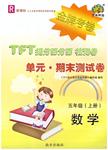题目内容
— Sir, you are fined for speeding. Please sign here.
— Fined? Speeding? ______.
A. Are you all right? B. You can't be serious!
C. I'm a foreigner. D. It doesn't matter.
B
【解析】
试题分析:考查交际用语。A. Are you all right?你还好吧?B. You can’t be serious! 你不会是认真的吧!C. I'm a foreigner.我是名外国人。D. It doesn't matter.没关系。句意:——先生,您超速罚款了,请在这里签字。——罚款?超速?你不会是认真的吧!故B正确。
考点:考查交际用语

练习册系列答案
 提分百分百检测卷单元期末测试卷系列答案
提分百分百检测卷单元期末测试卷系列答案 小学期末标准试卷系列答案
小学期末标准试卷系列答案
相关题目